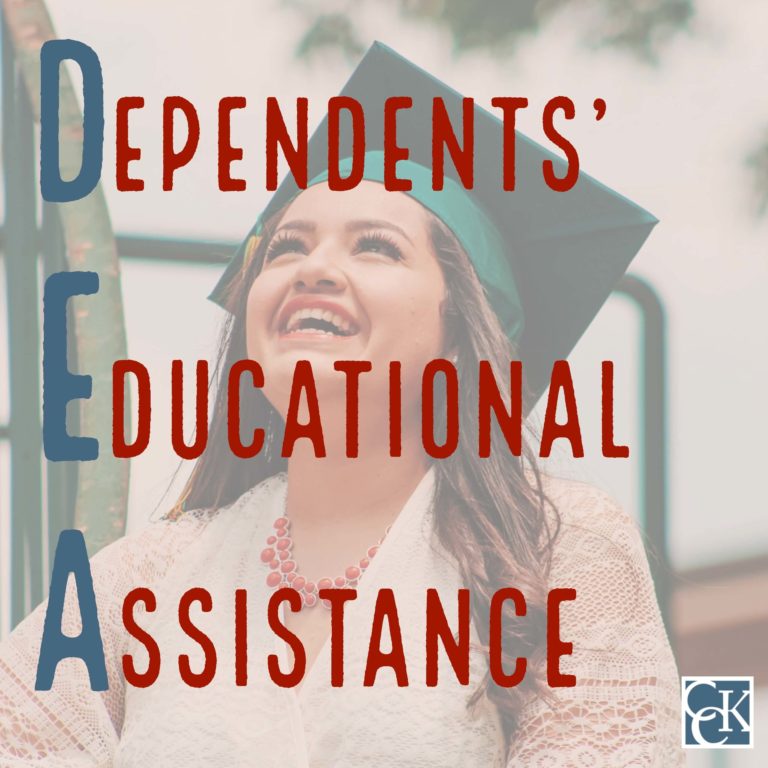What is the Dependents Educational Assistance (DEA) Program?

The Survivors’ and Dependents’ Educational Assistance (DEA) program is a part of the GI Bill aimed at offering education and training to eligible survivors and dependents of veterans and servicemembers who:
- died while on active duty, or
- passed away as a result of a service-connected disability, or
- are currently permanently and totally disabled due to a service-connected condition(s).
Who is eligible for DEA?
DEA benefits are reserved for the spouses and children (dependents) of:
- A veteran who is permanently and totally (P&T) disabled due to a service-connected disability; OR a veteran who passed away from a P&T condition that was incurred during or aggravated by military service.
- A veteran who passed away from any cause while living with a service-connected P&T disability.
- An active-duty servicemember who is currently missing in action (MIA), “captured in the line of duty by a hostile force,” or “forcibly detained or interned in line of duty by a foreign government or power.”
- An active-duty servicemember who has been deemed permanently and totally disabled by the VA, is receiving outpatient care for said disability, and is likely to be discharged from service because of it.
How long are dependents and survivors able to receive DEA benefits?
The length of time that eligible dependents are able to receive benefits from the Survivors’ and Dependents’ Educational Assistance program depends on their relation to the veteran or servicemember. Different limitations exist for spouses and children when it comes to eligibility.
Children
- Children of veterans and servicemembers who meet eligibility requirements may utilize this benefit over an eight-year period, while between ages 18 and 26. There are exceptions to this rule, but these are typically the time constraints for child recipients.
Spouses:
Eligible spouses may receive DEA benefits for…
- up to 20 years from the servicemember’s date of death if they died on active duty”; OR
- 10 years starting from the date of the veteran’s death, or 10 years starting from the date VA determines that the spouse meets the eligibility requirements for DEA.
What benefits are offered by the Survivors’ and Dependents’ Educational Assistance (DEA) Program?
Eligible survivors and dependents are able to receive educational assistance for up to 45 months. As of March 2018, full-time students taking part in the DEA program receive $1,024.00 each month while completing their coursework. The Survivors’ and Dependents’ Educational Assistance program allows eligible students enrolled in the following programs to receive assistance from VA:
- College, university, or other school
- Career-training, licensing, and certification tests
- On-the-job training or apprenticeships
- Tutorial assistance
- Work study
How to apply for DEA benefits
In order to apply for DEA benefits, VA requires that eligible dependents and survivors complete and submit VA form 22-5490: Dependents’ Application for VA Education Benefits.
Can eligible survivors collect DEA and DIC benefits?
Spouses may receive Survivors’ and Dependents’ Educational Assistance and Dependency and Indemnity Compensation concurrently (at the same time). Children of deceased veterans, however, may not collect both benefits because children over age 18 are generally not entitled to DIC benefits.
About the Author
Share this Post
